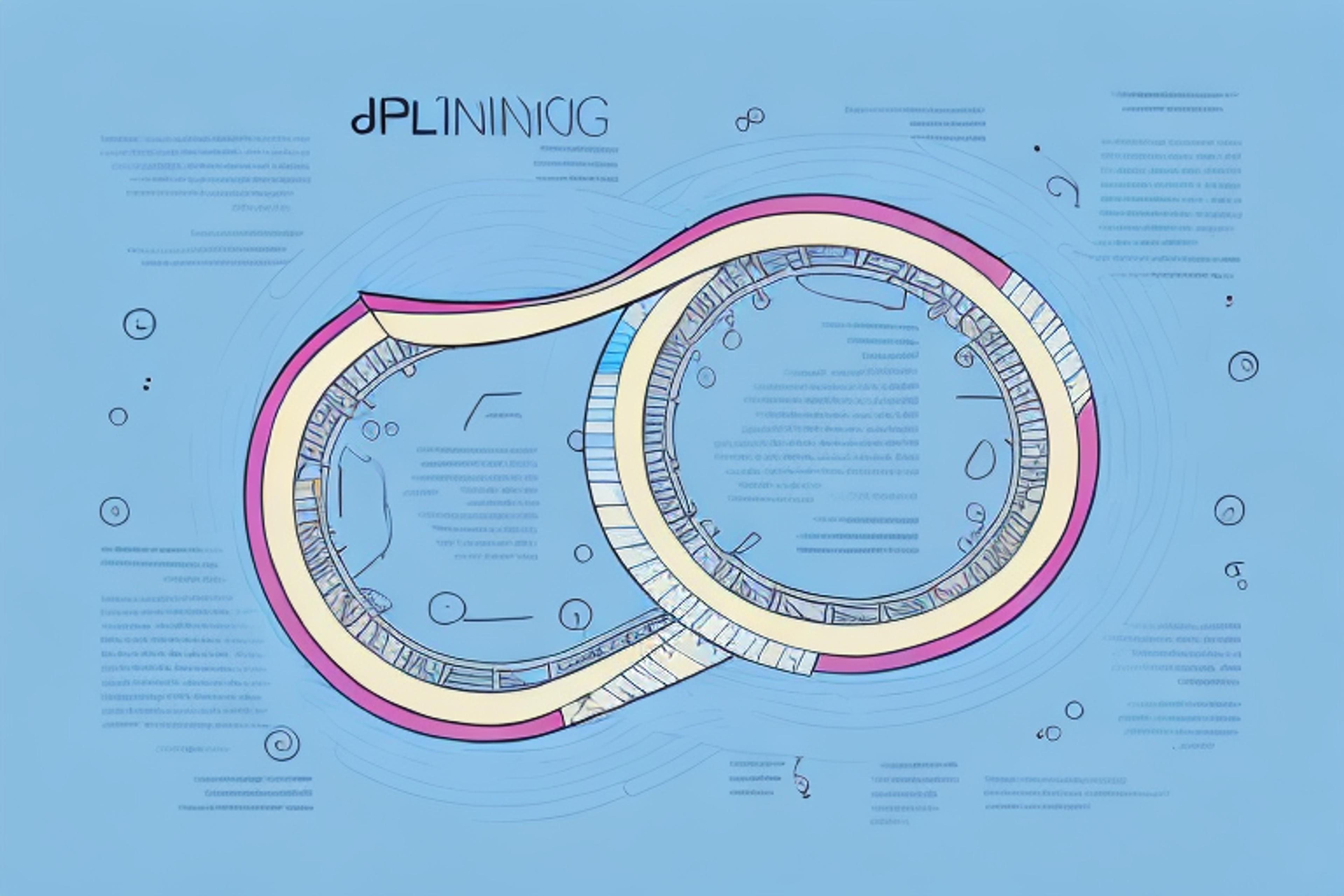McKinsey Associate Salary Breakdown (2025)
Curious about the salary of an associate at McKinsey? This article takes a deep dive into the compensation packages offered by one of the world's top consulting firms.
Posted March 6, 2025

Table of Contents
For candidates who are interested in a career in consulting, there's a good chance they’ve heard of McKinsey & Company. Known as one of the world’s largest and most prestigious consulting firms, McKinsey is highly sought after by business graduates and professionals alike. But what is the McKinsey associate salary? What factors affect it? This article will explain everything there is to know about the compensation package for associates at McKinsey.
What is McKinsey?
Before diving into the salary details, it's important to understand what McKinsey is and what an associate does. McKinsey is a management consulting firm that advises businesses, governments, and non-profit organizations on a wide range of issues, including strategy, operations, and technology. Associates at McKinsey typically work in teams to help clients solve complex problems and improve performance.
McKinsey is one of the most prestigious consulting firms in the world, with a reputation for attracting top talent and delivering exceptional results. The firm has a global presence, with offices in over 60 countries, and works with clients across a wide range of industries, from healthcare and finance to energy and retail.
What is a McKinsey Associate?
At McKinsey, an Associate is the second rung on the ladder, after Business Analyst but before Engagement Manager. Associates typically have an MBA or several years of work experience.
McKinsey Associate Qualifications
- Bachelor's degree; Advanced graduate degree (e.g., MBA, PhD, etc.) or equivalent (typically 5+ years) work experience preferred; Requirements may vary by country or practice
- Ability to work collaboratively in a team and create an inclusive environment with people at all levels of an organization
- Capability to drive an independent workstream in the context of a broader team project
- Comfort with ambiguous, ever-changing situations
- Ability to break down and solve problems through quantitative thinking and analysis
- Ability to communicate effectively, both verbally and in writing, in English and local office language(s)
What Does an Associate Do?
On its site, McKinsey explains the associate position, saying:
“You'll work in teams of typically 3 - 5 consultants to identify, and oftentimes implement, potential solutions for a specific client problem or challenge. Together, you will help clients make lasting improvements to their performance and realize their most important goals.
Over the course of each project, you will gather and analyze information, formulate and test hypotheses, and develop and communicate recommendations. You'll also present results to client management and implement recommendations in collaboration with client team members. In some cases, you will be asked to travel to your client site.”
The firm also gives a list of what associates will be coached on during their time at McKinsey, including:
- Structure ambiguous problems and take action to solve them
- Use data, facts, and logical reasoning to make rational decisions Comprehend content (e.g., email, articles, spreadsheets) and synthesize it into a clear and communicable format (either written or verbally)
- Work effectively with diverse teams to come up with the best solution and move people and organizations to act
- Establish trust-based relationships with clients to better serve their organizations
- Communicate effectively with all audiences, including senior leaders, in a structured manner
- Develop your leadership style, leveraging your own passions, strengths, and personal values
As an associate at McKinsey, one can expect to work long hours and travel frequently, as they collaborate with clients and team members to develop innovative solutions to complex problems. They’ll need to be highly analytical, with strong problem-solving skills and the ability to communicate effectively with clients and colleagues at all levels of the organization.
The Hiring Process
McKinsey is known for its rigorous recruitment process, which involves a mix of behavioral interviews, case interviews, digital assessments, online assessments, and imbellus game-based assessments. While the exact process can vary depending on the region and office, it’s important to take the first step to being prepared for multiple rounds of interviews.
One important aspect of the hiring process at McKinsey is the emphasis on teamwork and collaboration. Associates are expected to work closely with their colleagues and clients. Candidates may be asked to participate in group exercises or team-based case studies to assess their ability to work effectively in a team environment. Candidates need to demonstrate strong communication and collaboration skills throughout the hiring process, as these are key qualities that McKinsey looks for in its associates.
Salary Breakdown for Associates at McKinsey – Base Pay, Bonuses, and Benefits
So, what can a candidate expect to earn as an associate at McKinsey? According to data from Glassdoor, the average base salary for a McKinsey associate is around $196,000 - $257,000 per year. However, this is just the base salary; McKinsey consultants and associates have the potential to earn a substantial performance bonus on top of that. These performance-based bonuses can range from a few thousand dollars to tens of thousands, depending on individual contributions and the success of their projects.
In addition to financial compensation, McKinsey associates enjoy various benefits, including health insurance, retirement savings plans, and paid time off. They also benefit from McKinsey’s commitment to professional growth, with access to training programs, mentorships, and networking events with a senior partner or leader.
A McKinsey associate has the chance to advance their skills in areas such as data analysis, project management, and client communication, which positions many for growth into higher roles.
At McKinsey, compensation for other roles varies widely:
- Business Analyst: A McKinsey business analyst salary is typically lower than associates, reflecting the entry-level nature of the role.
- Engagement Manager: A McKinsey engagement manager salary sees a significantly higher base, often exceeding $200,000,
- Management Consultant: A management consultant's salary in McKinsey can vary based on experience, with competitive packages that reflect their expertise and contributions to client engagements.
- Partner: A McKinsey partner salary has top-tier compensation, with base salaries in the upper range of the industry, plus performance bonuses that reflect their critical role in leading the firm's most strategic initiatives.
Salary for an Associate at McKinsey vs. Other Consulting Firms
While McKinsey is known for offering competitive salaries to its employees, it's important to compare the firm's compensation package to that of other consulting firms. According to data from the management consultant career platform Management Consulted, McKinsey's compensation package is in line with other top firms such as Bain and BCG. For example, McKinsey associates typically earn a base salary ranging from approximately $100,000 to $110,000, with total compensation (including performance bonuses) around $120,000 to $140,000 in the first year. At Bain and BCG, associate consultants—roles equivalent to McKinsey's business analyst—earn a base salary of about $90,000 to $100,000, with total compensation packages generally ranging from $110,000 to $125,000.
For consultants (equivalent to McKinsey associates) at Bain and BCG, the base salary ranges from $140,000 to $150,000, with total earnings potentially reaching or exceeding $170,000, depending on performance and location.
Other Factors that Affect the Mckinsey Associate Salary
1. Level of Experience
One of the most significant factors influencing a McKinsey Associate's salary is their level of experience. Associates with prior consulting experience or several years of professional expertise in a related field may command higher starting salaries. As they progress, performance becomes a critical factor—high-performing associates who consistently exceed expectations can expect more frequent and substantial bonuses, as well as accelerated salary growth through promotions. Moreover, those who have prior consulting experience at other firms, such as Bain or BCG, might enter McKinsey at a higher compensation tier due to their transferable skill set and industry knowledge.
2. Location
Geography plays a pivotal role in determining the salary of McKinsey Associates. Salaries can vary significantly depending on the city or region in which the associate is based. For instance, associates working in major cities with a higher cost of living, such as New York, London, or San Francisco, typically earn more than those in smaller markets or regions with lower demand for consulting services. Additionally, international offices may have different salary structures due to local economic conditions, competitive pressures, and varying tax laws. For example, an associate in Dubai or Singapore may earn a premium due to the high demand for consulting talent in those fast-growing markets.
3. Education and Background
An associate’s educational background also plays a crucial role in determining salary. McKinsey is known for recruiting top talent from prestigious MBA programs, such as Harvard, Stanford, and INSEAD, and individuals with these qualifications may command higher starting salaries compared to those without an advanced degree. Additionally, associates with unique or specialized expertise—such as data science, healthcare, or technology—may also receive compensation boosts due to the niche nature of their skill sets.
4. Bonuses and Performance Incentives
Beyond base salary, McKinsey Associates are eligible for a variety of performance-based incentives. Annual bonuses are typically tied to both individual and company performance. McKinsey evaluates associates through a rigorous performance review process, where top performers can receive significant bonus payouts. In addition to yearly bonuses, high-performing associates may also be offered profit-sharing plans or equity options, especially as they climb the ranks within the firm. For example, senior associates nearing the engagement manager level often see their bonuses increase as a percentage of their overall compensation.
5. Benefits and Perks
McKinsey provides a competitive benefits package that extends beyond salary. This includes comprehensive health insurance options, retirement plans, and various other perks such as fitness reimbursements and wellness programs. Some associates may have access to relocation assistance, which can help offset the costs of moving to a higher-cost city or international office. Additionally, McKinsey is known for offering generous vacation time and the option to take unpaid leave for personal projects or educational pursuits, which can provide a better work-life balance compared to other high-pressure consulting firms.
Career Growth Opportunities for Associates at McKinsey and How It Affects Salary
One of the key advantages of working at McKinsey is the potential for career growth, which can substantially impact earnings. Associates have the opportunity to reach partner level by advancing through senior roles, such as engagement manager, which come with increased salaries, responsibilities, and performance bonuses. McKinsey also offers associates a generous signing bonus and access to extensive training and development programs to support them on their path.
Career growth at McKinsey can also enhance salary potential through specialization. As associates work on varied projects, they develop skills and expertise—such as in digital transformation or sustainability—which make them more valuable to the firm. The vast majority of associates who gain specialized knowledge see their earning potential rise, positioning them as competitive candidates both within McKinsey and at other firms.
Key career growth and salary impact points at McKinsey:
- Advancement Opportunities: Associates can reach higher roles, including engagement manager and partner, with higher base salaries and bonuses.
- Signing Bonus: New associates are typically offered a signing bonus in addition to their base pay.
- Performance Bonus: Performance-based bonuses reward both individual achievements and project success.
- Specialized Knowledge Development: Working on diverse projects allows associates to develop niche expertise, increasing their value.
- Global Mobility: Associates may work in various regions, with higher compensation in high-cost cities and stipends for international assignments.
Tips on How to Negotiate Salary as an Associate at McKinsey
When working as an associate at McKinsey, it’s important to be prepared for the negotiation process. Negotiating a salary can be intimidating, but it is an essential step in receiving fair compensation for the work performed. Some tips for negotiating salary as an associate at McKinsey include researching industry salaries, talking to current and former McKinsey employees, and being prepared to make a case for one’s value to the firm.
Another important tip for negotiating salary as an associate at McKinsey is to be flexible. While it’s important to have a clear idea of personal worth, it’s also essential to be open to negotiation and compromise. This can help build a positive relationship with the employer and demonstrate a willingness to work collaboratively to achieve common goals.
Finally, it’s important to remember that negotiating salary is just one part of the overall compensation package. Other benefits, such as healthcare, retirement plans, and vacation time, should be considered when evaluating the offer. These benefits can significantly impact overall quality of life and should be taken into account when making a decision.
Read: How to Negotiate Your Salary – With Example Emails | Leland
The Bottom Line
Overall, the salary for an associate at McKinsey is highly competitive and can be influenced by various factors, including experience, performance, and location. While salary is just one aspect of working at McKinsey, it is an important consideration for anyone pursuing a career in consulting. By understanding the factors that affect salary and being prepared to negotiate and advocate effectively, candidates can set themselves up for success in this challenging and rewarding field.
For personalized guidance on navigating the McKinsey hiring process, salary negotiation, and advancing in consulting, browse Leland's extensive network of management consulting coaches who specialize in helping candidates excel in their consulting careers.
Interested in exploring more about careers at McKinsey? Check out other articles that delve into salaries and various positions within the firm:
- McKinsey PhD Salary: What to Expect in 2023
- Internship Opportunities at McKinsey & Company: What to Expect
- McKinsey Insight Program: An Insider's Perspective
- MBA Consultant Salary: Expectations Vs Reality
- Demystifying McKinsey Target Schools MBA: What You Need to Know
FAQs
What does an associate at McKinsey earn?
- The estimated total pay range for an Associate at McKinsey & Company is $165K–$204K per year, which includes base salary and additional pay. The average Associate base salary at McKinsey & Company is $165K per year.
What is the starting salary at McKinsey?
- McKinsey's salary for entry-level consultants in the United States likely ranges from $100,000 to $140,000 per year, while the figure for MBA-level/experienced Associates can be over $200,000.
What is the bonus for an associate at McKinsey?
- Performance Bonuses: McKinsey offers performance bonuses that range from 10-20% of base salary, depending on both individual performance and team success. High-performing consultants can significantly increase their total earnings with these bonuses.
Who pays more, McKinsey or BCG?
- Its $147,000 average base is on level with Boston Consulting Group (BCG) and ahead of McKinsey ($145,000) and Bain ($140,000). It is also tied with KPMG and Parthenon-EY for the best sign-on bonus ($35,000). However, its performance bonus at $36,750 is well below BCG, Accenture, and A.T. Kearney.
What does an associate do in McKinsey?
- You will play a key role in gathering data and contributing to the team's recommendations, and you will work directly with senior client executives. You will also have a voice in determining the team's style and pace of work.
Is it hard to get a job at McKinsey?
- McKinsey has a very rigorous (and competitive!) recruiting process that usually results in the hiring of excellent consultants. In many cases, it will be your colleagues you learn the most from when you work for McKinsey.
What is an entry-level job at McKinsey?
- Junior Associates join our offices and practices (e.g. Digital, Marketing & Sales, Operations, etc.) around the world to work in teams and directly with our clients. When you join McKinsey as a Junior Associate, you are joining a firm that will challenge you and invest in your professional development.
Is McKinsey a prestigious job?
- Along with Bain and Co. and the Boston Consulting Group, McKinsey is one of the three most prestigious consulting firms in the world – generally considered the most prestigious.
What degree do you need for McKinsey?
- You can join as an associate or junior associate if you have another postgraduate degree (e.g., PhD, Post-doc, MD, JD), hold a bachelor's or master's degree plus 4+ years of work experience, or completed your master's degree within four years of your bachelor's degree.
How difficult is a McKinsey interview?
- Like its top management consulting competitors, Bain and BCG, McKinsey typically hires only 1% of candidates who apply. In particular, McKinsey case interviews are tough to crack…but not impossible. If you're interested in trying to beat the odds, this article will tell you what you need to know to succeed.
What level is an associate at McKinsey?
- Associate: This is the post-MBA role, and the most populated role of the McKinsey Hierarchy Levels, usually managing an entire work stream, often managing a Business Analyst and working closely with the Engagement Manager
Is an Associate better than a consultant?
- Associates are junior-level consultants who are focused on learning and development, while consultants are mid-level consultants who have more experience and take on more responsibilities in leading workstreams, communicating with clients, and managing project finances.
What is the hierarchy of positions in McKinsey?
- McKinsey & Company 3 Analyst (for undergrad) / Associate (for advanced degrees) -> Engagement manager -> Associate partner -> partner -> senior partner.
How long does it take to become a partner at McKinsey?
- If you begin your career at McKinsey, you can expect to be elected to the first stage of a partnership in five to seven years. The greater your professional experience, the sooner you can reach this level. In the most senior position at McKinsey, you might be elected director seven years after you are made partner.
How fast can you get promoted at McKinsey?
- McKinsey offers the fastest career path to Partner. Those who complete every level of the consulting career path at McKinsey can become a Partner after just nine years. At Bain, consultants typically reach this position after 10 years.



















